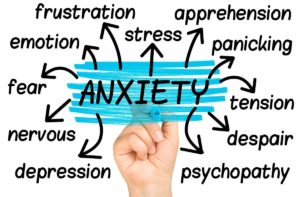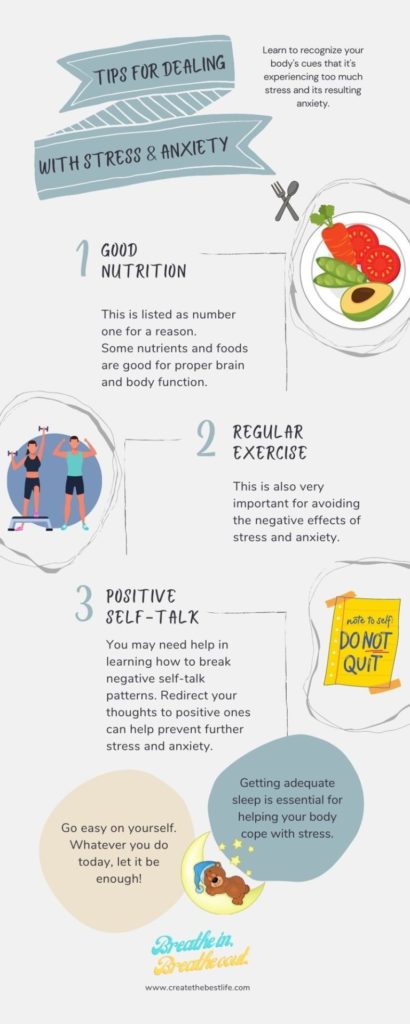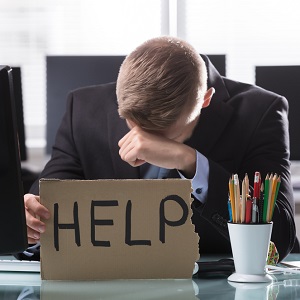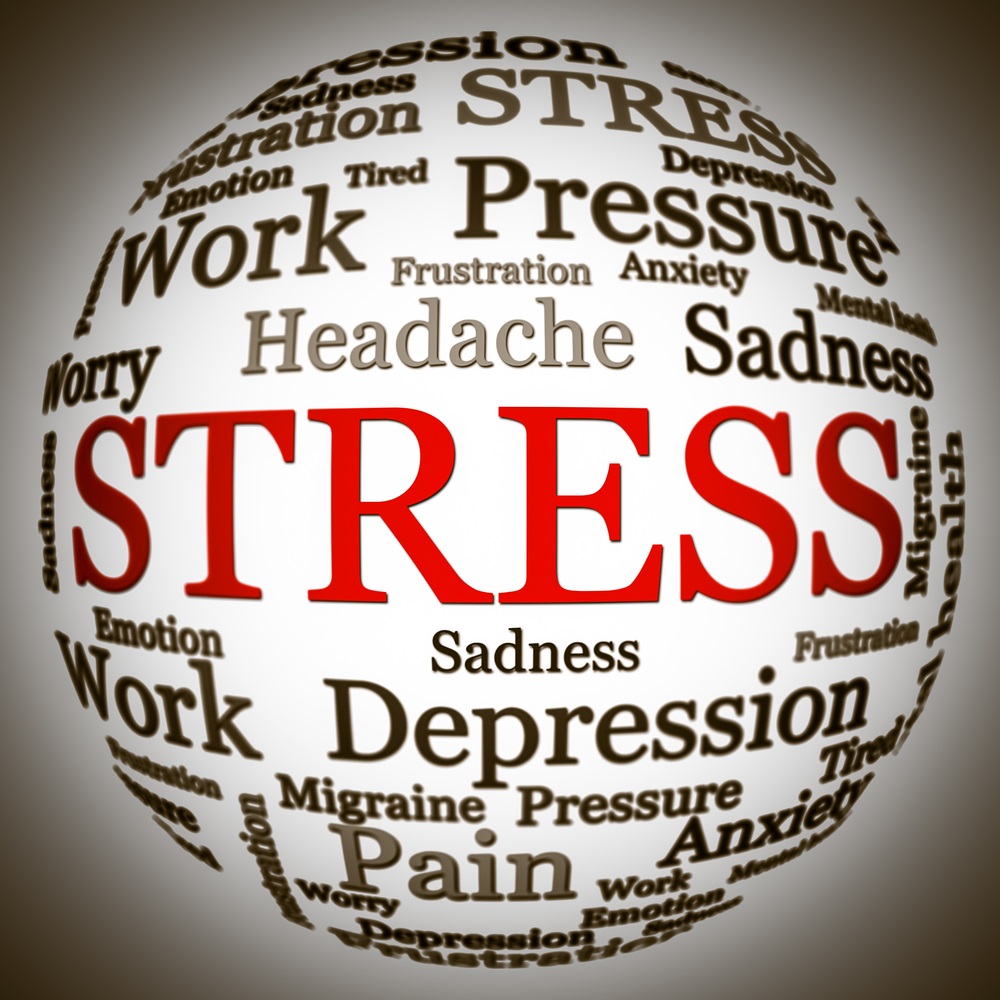 Do you know what causes stress? There are in fact a number of obvious reasons for stress but there are also not so obvious ones as well. It is important to deal with stress and anxiety before it causes serious health problems.
Do you know what causes stress? There are in fact a number of obvious reasons for stress but there are also not so obvious ones as well. It is important to deal with stress and anxiety before it causes serious health problems.
Some of the obvious reasons for stress include the loss of a loved one, losing your house to a fire, losing your job, having a major illness, or many other traumatic situations you might encounter.
The more subtle causes of stress might include difficult relationships both personal or work-related, along with financial issues or feeling like your life is out of control.
What is Stress?
It is a good idea to take a look at what causes stress and is it really that bad? It is not always bad since there are times when stress can actually save your life.
 For example, you are likely to feel stress as you start to cross an intersection and someone runs a red light.
For example, you are likely to feel stress as you start to cross an intersection and someone runs a red light.
Your reaction at this point is critical. You need to be fast in your reaction.
You need to slam on the car’s brakes so you don’t hit the other car. Your body has actually responded to this stressful situation.
The fight or flight reaction has just kicked in. This is a good thing.
As you can see some forms of stress are helpful. On the other hand, chronic stress is not a good thing.
It can in fact be detrimental to your health.
You have suffered from stress day in and day out, your body is not going to be able to handle it well. This is chronic stress.
Here is a list of some possible causes of stress.
Having Difficult Relationships
If you feel trapped in a difficult marriage you are going to be dealing with stress daily. As a result, you end up with chronic stress.
Although divorce may seem like the solution, it offers even more stress.
As a result, you end up having to deal with stress and anxiety and not living your best life.
Taking Your Retirement
 We may all look forward to retiring from our jobs and living a more carefree life, but there is stress associated with this change in life.
We may all look forward to retiring from our jobs and living a more carefree life, but there is stress associated with this change in life.
Although the stress we dealt with while working has gone, a new form of stress has shown up.
When we retire our schedules change completely.
Yes, we may have more freedom but the question is what to do with ourselves now that we have more time on our hands.
A lot of people feel useless when they don’t have a job to go to anymore.
Now we have to deal with stress and anxiety when we should be relaxing and enjoying life.
Having to Deal with Illness
Serious illnesses such as cancer can be extremely stressful. Not only the person with the disease but their family and friends also have to deal with stress.
Stress can be very hard on relationships. This may then add even more stress on everyone.
Suffering an Injury
Suffering from an injury can be a huge stressor. While it may depend on the nature of the injury, your entire life may have to deal with upheaval and chronic pain.
Certainly, extreme pain even if it’s temporary, is going to cause a lot of stress.
Trying to be Perfect
 There is nothing like trying to be perfect to put a lot of stress on yourself.
There is nothing like trying to be perfect to put a lot of stress on yourself.
The more you try to be perfect, to get everything right, the more stress you are causing yourself.
We have to remember that there is no such thing as being perfect.
You can try for excellence, but anything else is just going to leave you disappointed in yourself and stress you out big time.
One thing for sure is that trying to be a perfectionist is just going to lead to being chronically stressed.
What is Anxiety?
It is about being worried that basically never stops. In fact, worry can cause all sorts of physical, emotional, and psychological manifestations.
Here is a list of some of the symptoms associated with worrying:
Having Abdominal or Digestive Problems
Anxiety can cause pain in the abdomen along with digestive issues. It can in fact cause nausea, vomiting, and even diarrhea.
 Have you ever experienced “butterflies in your stomach”? This refers to that fluttery feeling you get in the middle of your abdomen when you are nervous.
Have you ever experienced “butterflies in your stomach”? This refers to that fluttery feeling you get in the middle of your abdomen when you are nervous.
This reaction is a result of the flight or fight response.
What happens when you get anxious is that the body decreases circulation to non-vital processes such as digestion.
The result is that your body is into a full-scale alert where you want to run or fight.
When this feeling of being anxious is prolonged, the digestive tract becomes worn out.
Since it has trouble with the return of normal circulation, it begins to malfunction.
Having Tension in the Muscles
When our muscles get tense, we start experiencing pain throughout the body. One of the most frightening is the chest tightness in a “panic attack.”
These muscle spasms feel like you are choking or like you are having a heart attack. This just increases the feelings of fear and anxiety.
Experiencing Headaches
When we feel anxious headaches can occur probably as a result of muscle tension. It can also be caused by a chemical imbalance in the brain.
Having Heart Palpitations
This is a very scary symptom but one that often happens when one is terribly anxious. It feels like the heart is beating rapidly and even irregularly.
Again, this is the fight or flight response.
Experiencing Bouts of Restlessness or Insomnia
Man people who experience anxiety often have trouble relaxing and sleeping. Unfortunately, a lack of proper sleep just leads to more feelings of anxiety.
What are the Causes of Anxiety?
 There are a few causes of anxiety. One is genetics. There is some evidence that anxiety can be inherited.
There are a few causes of anxiety. One is genetics. There is some evidence that anxiety can be inherited.
Although genetic, anxiety may need an environmental trigger in order for a person to experience symptoms.
Another cause is experiencing a traumatic event. People who have served abuse, war veterans, and other victims of a traumatic experience often suffer from anxiety.
It has been described as though the brain can’t move on from the experience. As a result, anxious thoughts and physical symptoms of anxiety can occur.
People who suffer from anxiety often have abnormal levels of neurotransmitters in their brains.
This means that the brain has trouble being able to transmit information on a cellular level.
How to Prevent Stress and Anxiety From Happening
If you are one of those people who have to deal with stress and anxiety, you probably want to find a way to avoid feeling this way.
Although stress and even anxiety in our lives are inevitable when can learn to cope with these feelings and live a functional and healthy life.
Here are some tips on how to deal with stress and anxiety:
Make Sure to Include Good Nutrition in Your Diet
 This is the number one reason on how to prevent stress and anxiety.
This is the number one reason on how to prevent stress and anxiety.
Nutrition helps us to be able to cope with stress and anxiety and prevent them from taking over your life.
There are a number of nutrients that are beneficial for proper brain and body function:
Be sure to include foods with essential fatty acids. It can be found in foods such as olive oil, flax seeds, salmon, and some unrefined vegetable oils.
Vitamin D is an important vitamin when it comes to mood regulation. It is also helpful in the treatment of people who suffer from Seasonal Affective Disorder.
Daily exercise is another way to avoid the negative effects of stress and anxiety. For one, exercise increase circulation in the body and also helps to produce endorphins (the feel-good hormone).
Engage in positive self-talk so you can break the habit of putting yourself down. Just because you make a mistake doesn’t mean you should beat yourself up. This just causes stress and more anxiety in your life.
Try some deep breathing exercises. This is a great way to relieve some anxious moments or stress. When we take deep breaths we are focusing on our thoughts. It also promotes the circulation of oxygen in our bodies.
Try to get enough rest and adequate sleep. This is essential in helping our bodies deal with stress and anxiety.
Chronic Stress, Anxiety? You Are Your Best Doctor Video:
It is important to learn to recognize when you are experiencing a lot of stress in your life which often results in feeling anxious.
Also, pay attention to your feelings around fatigue or anxious thoughts. As well you might want to check to see if you are experiencing muscle tension.
There are cues to let you know that you need to deal with stress and anxiety.
Once we start paying attention to these cues we will be able to stop these feelings before they take hold of us.






